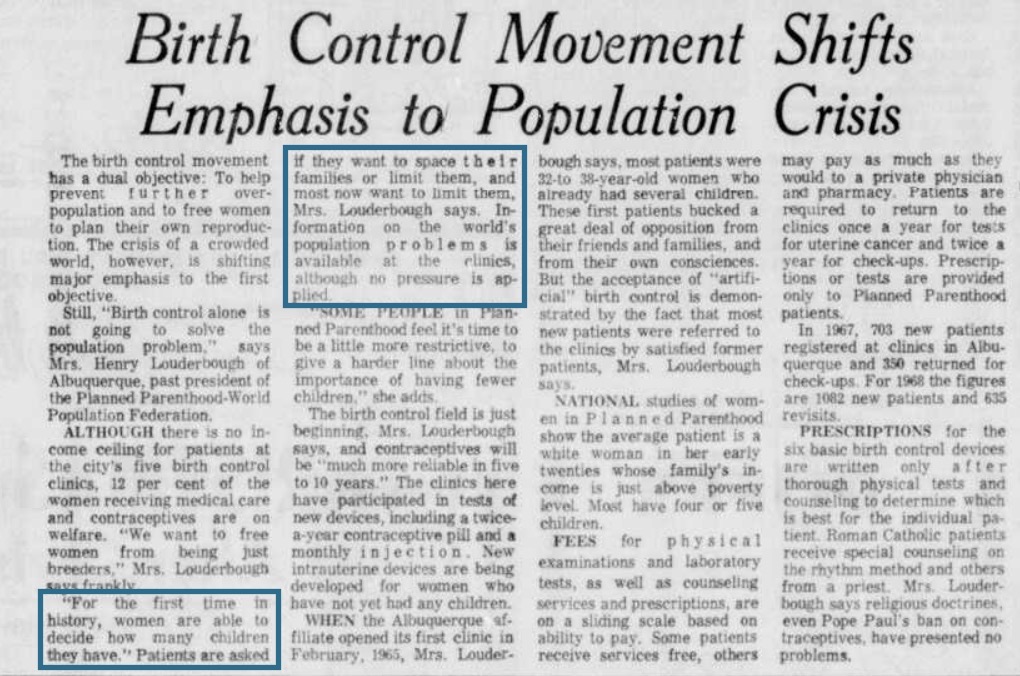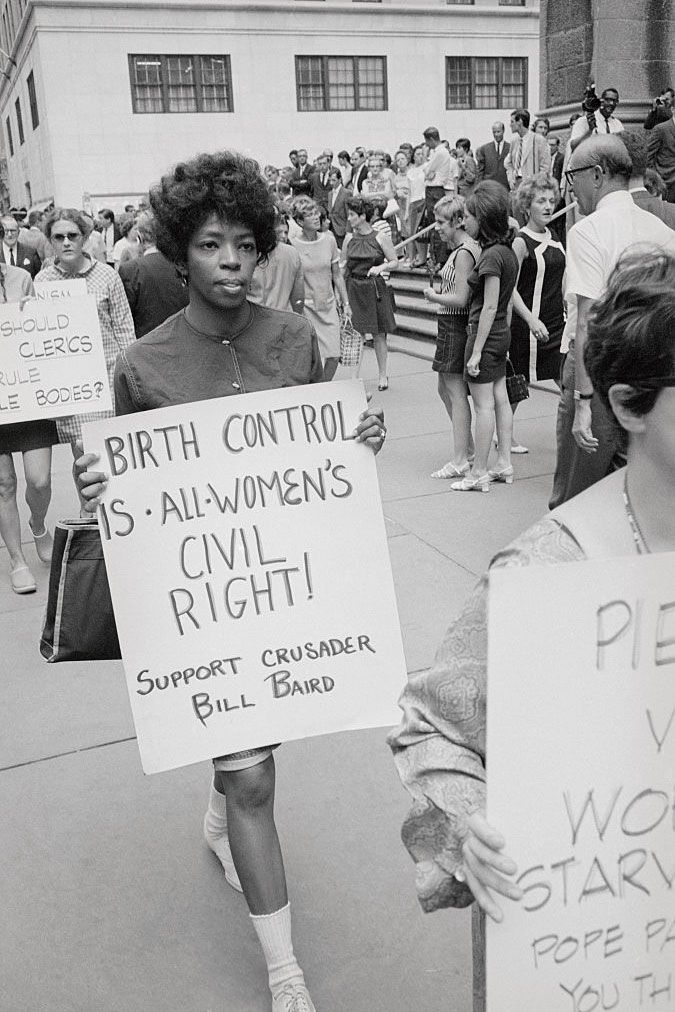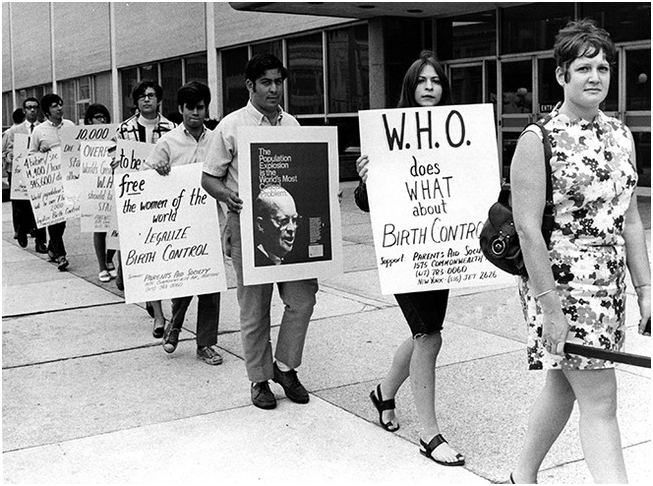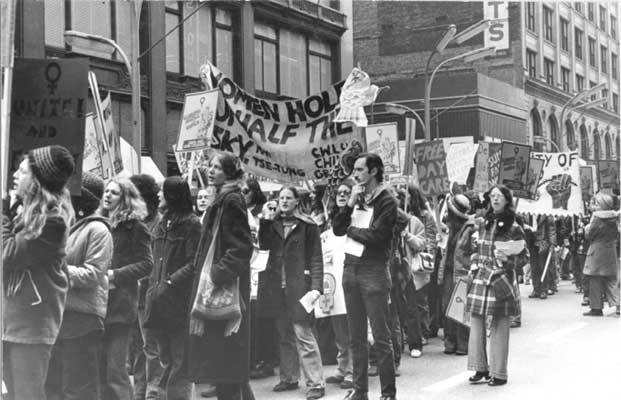Following World War II, marriage and birth rates reached an all-time high. Many women joined the labor force to provide for their families.
Women's health supporters strove for women to find agency amidst a male-dominated medical industry and access medical knowledge that was previously only available to healthcare professionals.
Feminists advocated for women’s rights to family planning and sexual autonomy, which were necessitated by safe, accessible methods of contraception.
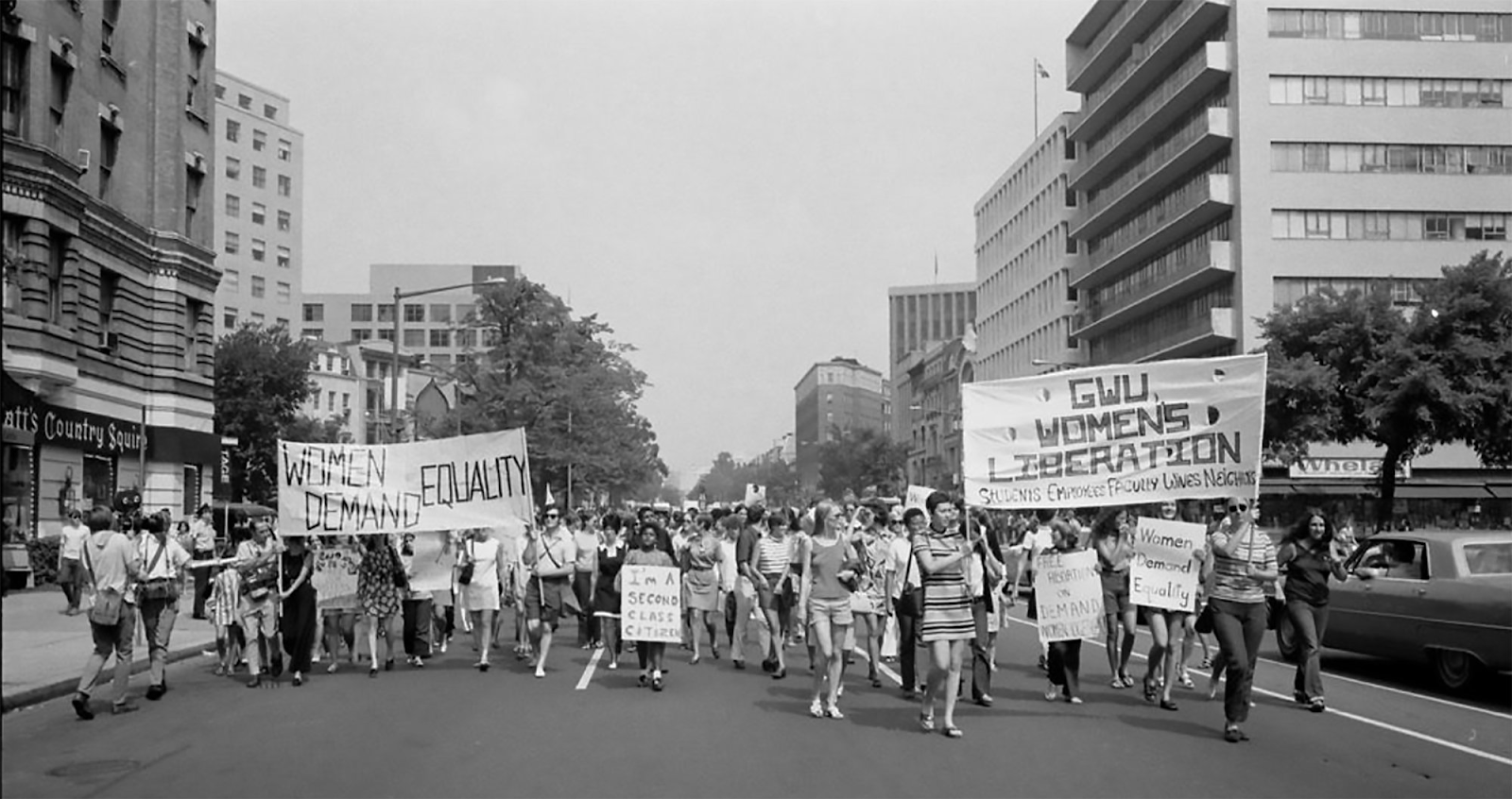
The Women's Liberation March, Washington, D.C., 1970. Courtesy of the Library of Congress.
